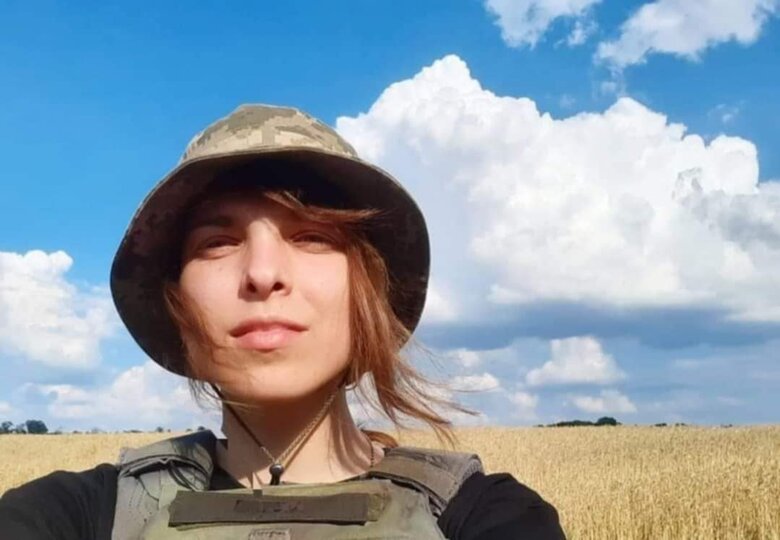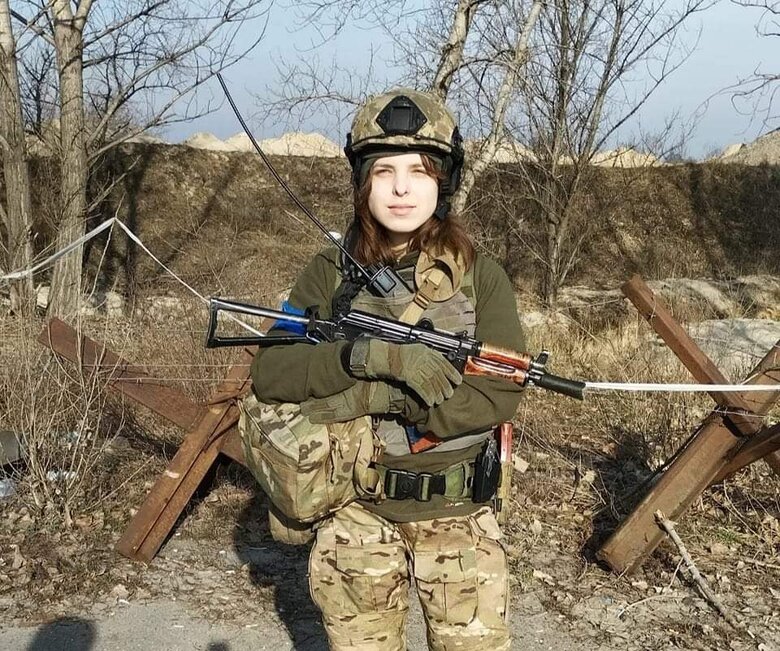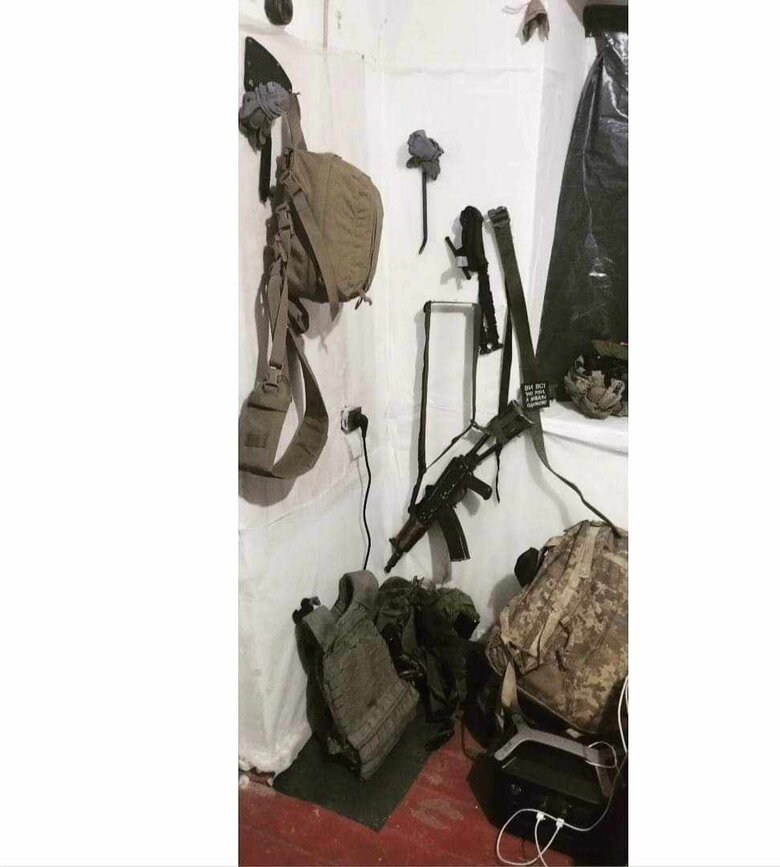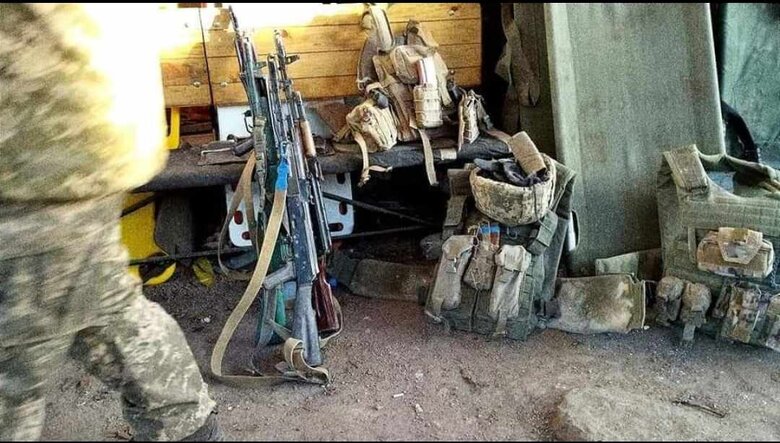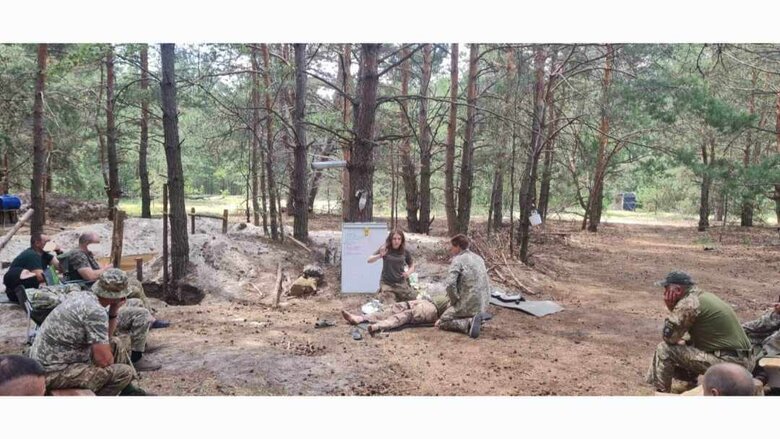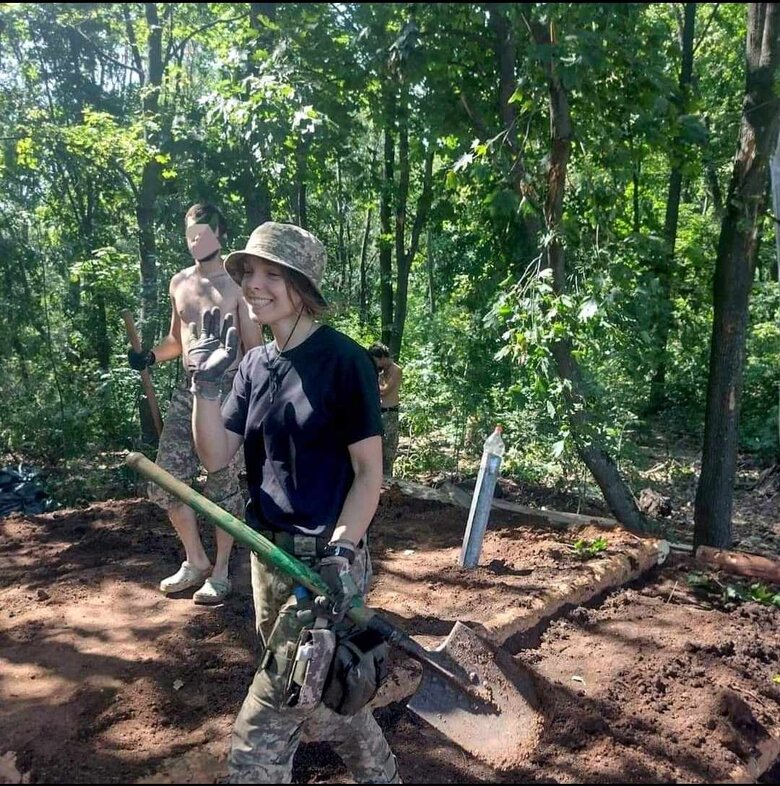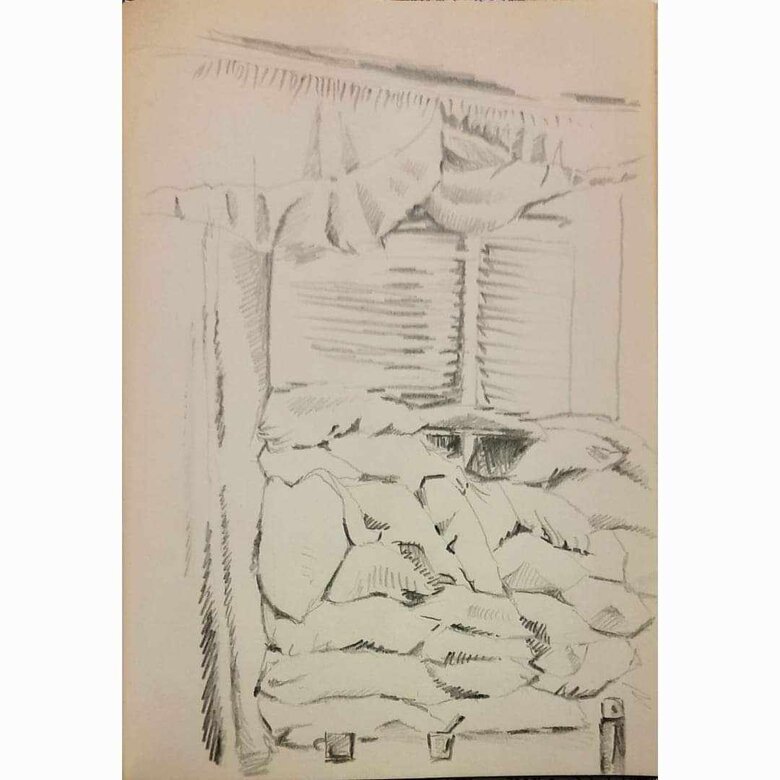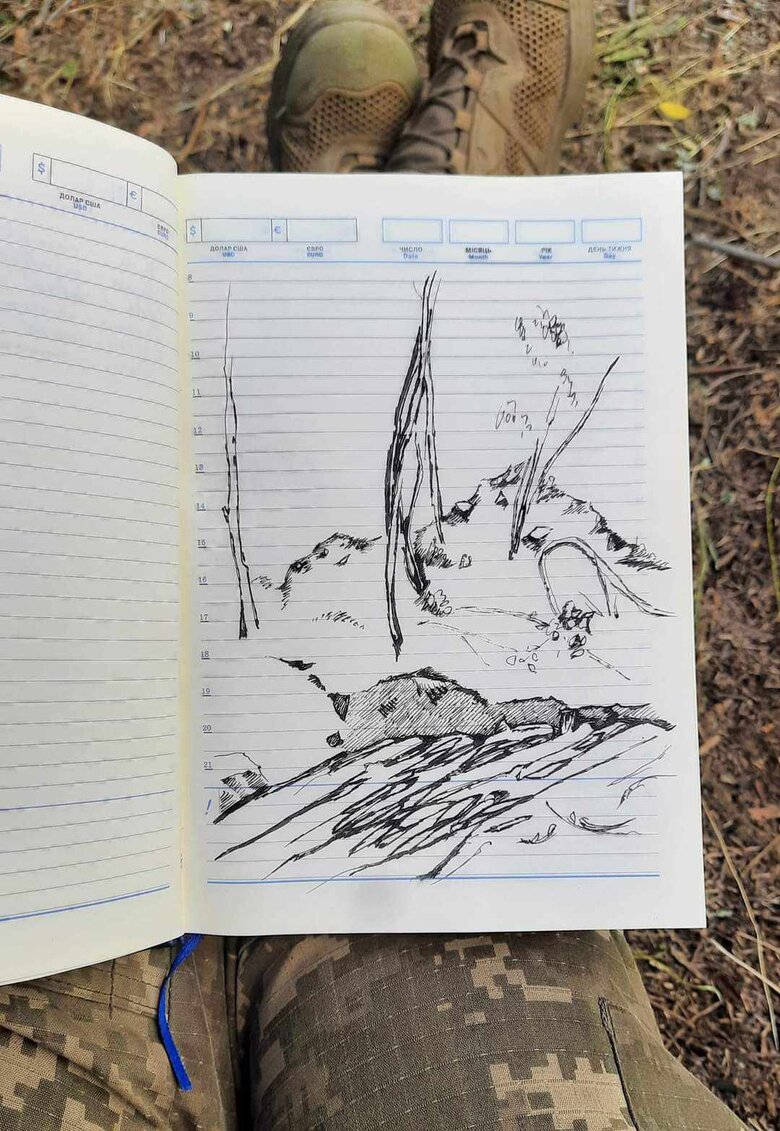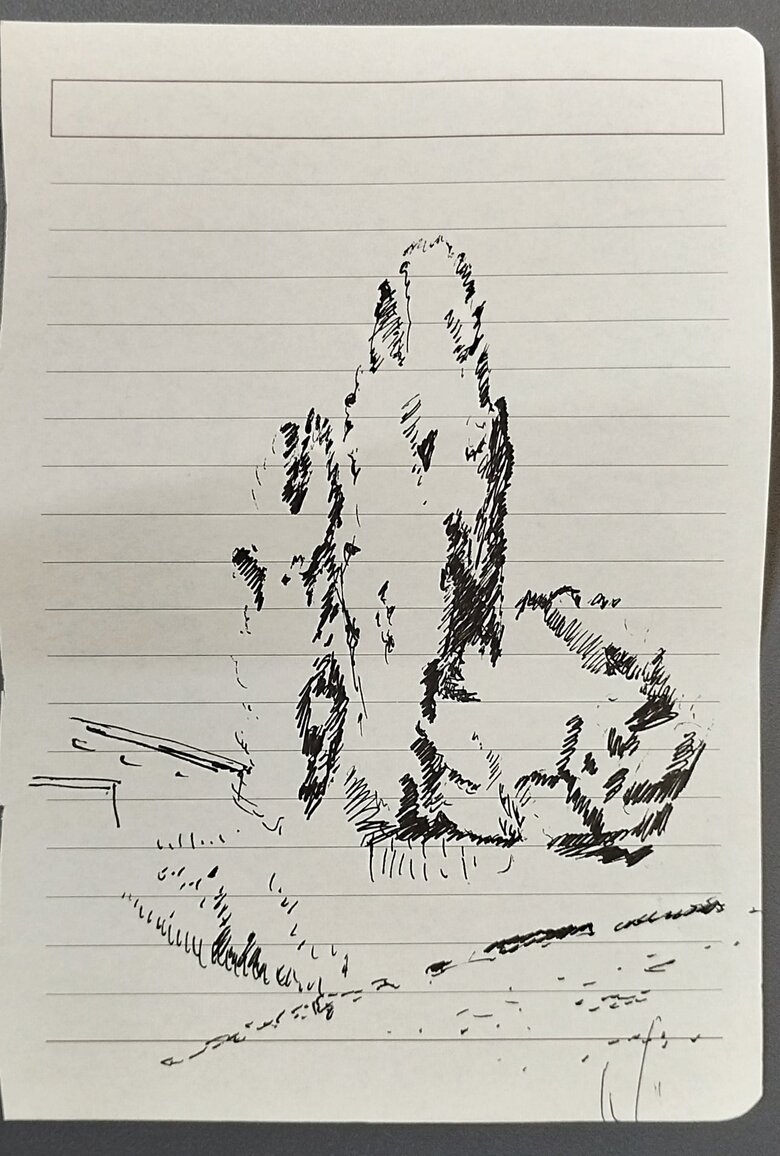Combat medic Sofiia Pomohaibo: "I’m ashamed when it is said that artists are "not cut out for war"
If not for the war, the artist Sofiia Pomohaibo would have continued to promote her vision of Ukrainian cubism to the masses, exhibiting her work in Ukraine and abroad. Instead, she joined the Kyiv TDF, and then, after numerous trials, made her way from rifle shooter to combat medics.
She saw a lot in this war and did even more to save the lives of Ukrainian soldiers.
In a conversation with Censor, 30-year-old Pomohaibo talks about her journey through the war, caring for the wounded, and social stereotypes about women in the Ukrainian army. She also talks about the fate of the luminaries of Ukrainian cubism, the people who inspire her work.
And we started with a question that was as natural as it was logical.
- Sofiia, where does this surname Pomohaibo come from?
- It is from the Kharkiv region, where it is quite common, and my grandfather was glad that I didn't take a pseudonym. For some reason, people often ask me if it's real or are surprised to hear it. By the way, you reminded me that I was once told that Marko Halanevych from the DakhaBrakha band, when he was watching my exhibition, said that I had a monumental surname. I thought then that if even Marko noticed, then maybe it really is not ordinary.
- How do you know Halanevych?
- He is not only a musician. We once had an exhibition of my paintings and a photo exhibition of his in the same year at the HudHraf gallery. We didn't know each other personally, we just saw the works, and I, of course, listened to the music (I don't know any people who haven't heard DakhaBrakha). Now they are constantly helping my comrades in arms. If I need to buy something urgently for the unit, I can turn to Mark. They actively help the military.
- Well done. As for the name Pomohaibo, it's no wonder you became a medic with him during the war. Didn't the blood make you sick at first?
- On the contrary, I used to be afraid of blood and wounds, I couldn't watch.
- And how did you overcome this phobia of yours? With willpower?
- I had a strong motivation to change. In general, I found myself in the army only because I went to an 8-hour course for civilians a week before the start of the full-scale war. And the day before the invasion, I registered with the Kyiv TDF (Territorial Defence Forces). I came with a certificate and was enrolled as a medic, although in fact I became a rifle shooter.
- And why is that?
- Because, as I was told later, they decided that the girl would not be able to cope. I was happy to be a rifle shooter. For almost a year, I was a rifle shooter, and at the same time, I was learning first aid.
- What did you think of the Kyiv TDF?
- People of different professions came here. Musicians, actors, lawyers, businessmen... All kinds of Kyiv residents. Some of them have 3 or 5 children, and they still do not discharge from the army. Only volunteer fighters came, many of whom had no military experience.
- What kind of weapon did they give you?
- As I came with a medical certificate, they gave me an AKS-74U. And when I was assigned as a rifle shooter, they did not change it.
- So, you tried to study medicine...
I asked for advice from our experienced doctors, and they were only too happy to tell me or show me something. I read and watched materials on this topic. And then, in the fall of 2022, at the end of our rotation, we got to positions where the commanders did not allow women to be present. There were active battles there, and they were afraid that we would be captured by the Wagnerites. My comrade in arms and I were left to guard the things. We stayed there for several days. We demanded to be allowed to go back to our positions.
- Were you going crazy?
- Yes, we were.
- They say that the boys are fighting there, and we are here...
- I felt like a traitor. I argued that I had to provide medical care. Then I was told that they needed hands on the emergency department. So I agreed to go there.
- Let's remind the reader what an emergency department is.
- An emergency department is a point between the hospital and the positions where the wounded are stabilized to be transported to the hospital.
- What was your function on the emergency department? Was it to be ready to carry out any assignment?
- Yes. On my first day in the emergency department, all my fears were in front of my eyes. At first, I was given a form 100 to fill out - it is a card for the hospital that contains information about the care provided and the wounded. It is also a document that is the basis for considering whether it is a combat injury. So, at first, I was writing these 100 forms, and a couple of days later I asked the doctors to involve me in helping them. Around the third week, I got used to this work psychologically. I helped doctors, followed their instructions, treated wounds, and bandaged. I also accompanied the wounded from the emergency department to the hospital. At that time, I had to make sure that they were okay. It was an important experience.
- You saw the face of this war in the emergency department. What were your feelings then?
- There had been wounded in our company before, and dead in our battalion. But nothing terrible happened next to me. Digging, standing at the posts - that's what happened. I could only imagine serious combat operations. But at the emergency department, you see not just the face, you see all the consequences.
What was I thinking at the time? First of all, I tried to abstract myself, not to think. I remembered art, associated myself with previous generations who had survived the war. Especially artists. Some of them, for example, the Cubist Georges Braque, fought in the infantry in the First World War, was wounded, but after that, he didn't paint the war at all, he continued what he had been doing before. Probably, his approach is closer to me, I also want to return to my landscapes and still lifes (at least, it seems to me now). I am encouraged that he was able to do it. It means I can do it too.
I am ashamed when it is said that artists are "not cut out for war". This is complete nonsense. First of all, there are Ukrainian artists, including my friends and acquaintances, who serve in the army and are fighting, and they already negate this statement. And at first, when I had no information about anyone, I relied on the experience of past generations that I read about. So I had all those thoughts and turned off my sensitivity.
- But you couldn't completely abstract yourself, could you?
- I still perceived myself as a soldier from my company and imagined myself in the place of the wounded. I should have been with them, not here. The doctors were more abstracted. They were doing their job. There was a surgeon who taught me, and I am very grateful to him. I asked him: how do you not feel their pain? Because I feel it when I look at them, and then it's hard for me to work. He replied: you have only two options - you either feel it or you help. This simple answer seemed to switch me to a different mode.
The hardest thing was to meet my comrades-in-arms at the emergency department, with whom I had been with since the beginning of my service and with whom I was in the same trenches. We were already like a family.
The only thing that consoled me in that situation was that often my comrades in arms who came to the emergency department were happy to see me. It calms you down when someone you know is there. It means there is no complete unknown. Some people asked: are you going to take me to the hospital?
- Is it better for guys if a girl takes them to the emergency department or hospital? Or do some of them not want to show her their pain?
- I can't speak for them. Sometimes I saw something like shame. You know, they want to look decent. There was a situation like this: an old man from the Zaporizhzhia region, with shrapnel wounds, sees me, a doctor, and says: oh, girls, sorry that I'm not as handsome as I used to be!
- Oh. That's so achingly.
- There was another case: I was given the task of gluing small wounds on a guy's face. I started gluing and I was nervous because it was the first time. And I had just been to the hairdresser's the day before, had my hair cut, and my head washed. I'm treating his face, gluing it up, and he says: "It smells so good. Can I smell your hair?". I think: "Fuck, yes, you can." They were brought in clothes that were soaked in mud. The emergency department smelled like a hospital. So it was a contrast. He smells my hair. I realize that he is somewhere else, and it makes him feel good.
- He became utterly absorbed in his world.
- Yes. And I calmed down myself. I had already managed to do everything. I saw that it distracted him...
In fact, the main thing is not to lose the ability to feel something pleasant. I was accompanying a wounded man who had a traumatic amputation of a part of his hand, and he was in pain, even though the painkillers were already working. So I started asking him where he wanted to go and what he wanted to eat when he was in the city. It might not have worked, but I guessed the right topic; he started to fantasize, saying that he would go there with his wife. And somehow we gradually got into this conversation. And he said, 'Okay, I'll see my wife soon, I'll go with her to this restaurant and that restaurant...' And he started talking. Soon he was able to fall asleep.
It's great if I can somehow distract a person, remind them of something good.
- And how do the medics who brought the wounded to the emergency department in an evacuation vehicle behave? Do they smoke and try to abstract themselves? Or do they go to see what's wrong with their wounded every time?
- The medics who brought them were very cool. Back then, it was mostly paratroopers. They came and helped quickly. If you have to go back immediately, they go back immediately. They have a crazy job: back and forth, back and forth, under fire. It's a continuous movement. I actually like that they were very cheerful. You have to have positive energy to save people.
- So, you worked in the emergency department. Then, as a platoon medic, you began to conduct training...
- This is a topic of great concern. Every soldier and every person in general should know the basic principles of first aid. While recovering, we were constantly training. This, of course, had results. Then I joined the medical service as a combat medic, and, among other things, I also conducted training. Thanks to the training on the following combat missions, those who were interested and trained had an understanding of how to help the wounded, even in the most stressful conditions. I have been written about similar cases. I was pleased to learn about it from those whom I taught. I, in turn, passed the stories on to the woman who taught me at the course. She thanked me for this support because they have an exhausting job. Not everyone wants to accept, not everyone is interested. That's why positive cases are so important, they give you the strength to keep working.
- When you were an instructor, how often did it happen that you looked at a person and realized that this person could not be a doctor?
- I don't think so. People thought so of me at first. But the 21-year-old medic with whom I served taught me and said: you have such a desire that you can definitely do it. I believe in you. The main thing is that you are learning.
Probably the most important qualities I would name are a strong desire and self-criticism.
- This time I will not ask about further service in another unit, but I propose to continue the conversation with a fundamental question. Sofiia, based on your experience, what does it mean to be a woman in the army in this war?
- The answer is: not at first, but as you present yourself, so it will be. Our people are capable of dialog, capable of understanding. Of course, at first, there is an automatic reaction: how to treat a woman, a girl. I was given the call sign Dotsia (Daughter). They started treating me like a daughter when I arrived.
- Who gave you the call sign?
- A doctor who taught me a lot. We met on the second day at the TDF. Although he was not of the age to call me Daughter, he treated me like a father.
- Yeah. I can imagine what it must be like to hear that call sign every day.
- Even the younger ones called it that. But over time, everything changed. A few months passed, and no one recognized either the call sign or me as they did at the beginning. But in fact, this characterizes the state of affairs: they saw me and immediately perceived me as a daughter, or a sister. That is, as a woman is usually perceived. Or as a girl who is interesting.
Nevertheless, the way you behave forms the attitude towards you in the future. Of course, there are some obstacles, but everyone has them.
- What should a woman who starts serving in the army not be allowed to do from the very beginning?
- Let me think about it... At first, I keep my distance from people, and then, gradually, when the relationship is established, I reduce this distance. In general, just like in ordinary life. However, in the army, people have tougher behavior, which is logical. The army is a "man's" world, a tough one. There, a person has to be resistant to everything. You have to learn how to do that. It took me a long time to learn. It took some time before they started taking me seriously. But then people told me: I thought you wouldn't withstand it for a month. Then they said, 'You won't withstand the next month, for sure. They said you were so miserable with that bandaged hand ("I had inflammation of the wrist due to the strain"), no one would have thought that you would spend so much time in the army, at first you looked like a person who had no idea where she was going. I answer: "How many of us had any idea?" - we laugh.
- How did you react to a chaplain's scandalous post about women in the army? Didn't you want to rain blood and fire on him in the first seconds? Or did you just shake your head?
- I read it aloud to my closest friends with whom I serve. I said: can you imagine what he would think we are doing here if he listened to our jokes? He would have laughed so hard! He would also listen to some gossip, and he would have a ready-made Santa Barbara story. In general, it rather made me laugh because it's absurd.
I am grateful to the women who are fighting, to the women in the military, thanks to whom I have the opportunity to be in combat positions. This struggle is primarily due to their own example. You can shout as much as you want that you need certain rights and conditions. But it is worth showing that you can do it, it will work better than words. In some situations, when I was not trusted with my work, I chose not to go straight into conflict if I could not convince them, but to give them time to see that I could do something. "Сonstant dropping wears away a stone."
It took time, as I said. I could not have done it without my commanders, who believed in me and made sure I was on equal terms with others. Equal, first of all, in terms of responsibilities.
- So they didn't have a prejudiced attitude towards you?
- In fact, they treated me the same way as everyone else, no matter what they actually thought. In other words, they separated work and personal attitude. When I first joined my company, I was sent to a post to guard a building. Guy, who was supposed to instruct me, said that he would not let me go to such a post, it was cold there and he would not let his daughter go. To which my commander replied: "This is not a girl, this is a soldier, there will be no discussion." There were many such cases. This supported me a lot.
At the same time, I did not agree to special conditions when someone wanted to take care of the comfort of the "girls". This special attention entailed spending energy and resources to create special conditions for me. After 17 years of vegetarianism, I started eating meat because our dry rations contain meat. Of course, if there is canned meat and fish, I will choose fish. There are people with different allergies, and somehow they manage, and I also figure out how to get out. Not only women, men can also have different special needs. Let's talk about everyone then.
For me, gender issues are not the main topic. It can be hard for both women and men in the army. I am in favor of everyone becoming civilized and learning to be negotiable.
- What other stereotypes about women in war have you encountered? Both in the army and in the rear?
- For some reason, men in the rear, when they ask about the army, try to put confidence in the question itself that I am safe. They say, "You must be at the headquarters, probably a medic somewhere at a distance. After that, I don't even want to talk to them about it. They see that I'm a military woman, maybe I'm wearing a uniform or something, and they immediately want to prove to themselves that I'm safe. Firstly, I don't want to explain anything; secondly, it's a conversation about them, while they try to pretend it's about me.
I went through different stages of reaction to this. At one time, it was quite difficult for me to accept. Even my comrades-in-arms, who saw this attitude, asked me later: how do you stand it? I couldn't stand it anymore - it happens so consistently. For example, I buy plastic boxes to put medicines in for our platoon. Some guy walks by and says: 'Oh, you'll cook for the guys!
- This is despite the fact that you are in shape, am I right?
- I was getting ready to leave. I had pants and Ubacs - Multicam, because I had to go to the permanent base. I went to the store in my free time and bought the necessary things for our departure.
Then, in the same store, I chose a pot and asked the sales assistant to show me which ones could be put on a gas cylinder. She said that here we had a discount for the military, for the guys - you're buying for the guys. I said that for myself. She said that she was so grateful to our guys, they protect us.
- And what about you?
- I said that I was buying for myself and for them. We'll be in the same place. You're a woman, I understand when men say that, but why do you say that?
She thought about it. Before, she simply did not accept this information. For her, it was like this: thank you to the guys who protect us. And she perceives me separately, that I buy them pots and pans. It used to bother me a little, but now I don't see any point in wasting my nerves.
- You visit Kyiv from time to time. Do you do nuts of seeing summer restaurant verandas full of laughing men? Or just ripped men in shops and gyms?
- I know that some of them are from the security and defence forces. How can you tell approximately whether a muscleman in the gym is not a military man, a firefighter, a programmer who does developments for the army, etc.? So I think you can't react like that to all men. The people who annoy me are the people I know who are not military, drone engineers who work day and night, or something else. I am annoyed by the "it's none of my business" attitude. I'm not saying that everyone should be in the trenches. But when people start talking about "all professions are important," the economic front, the cultural front, some other front... I liked that this has already been discussed publicly, as if I had heard it for the first time from the writer Andrii Bondar.
Secondly, I don't like it when people start saying that someone should be sent to the front as a punishment. This is often said: criminals, corrupt officials - send them to the front! I don't think that we should devalue the defense of the homeland in such a way. It is a duty. For me, these threats to the evil-doers are a sharp devaluation and disrespect for the military. I mean, some of them went to defend voluntarily, they are heroes. And let's send others there instead of punishing them? So you decide how you feel about this.
- Let's talk about art. The war has divided authors - in music, painting, etc. - into those who have time and inspiration during the war, and those who are complete with creativity. Which category do you belong to?
- To the second one. I have a few sketches from the war, but for me, it's not even art, it's a diary. It's just something that surrounds me. No more, no less. I see something, some first aid kits are always nearby. I want to look out the window and there are bags. You think: oh, I'll draw them. These are the very first days. You are lying on the floor, on a ground pad, waiting for something and thinking: I'll look out the window, it's a habit. There are bags there. So what am I going to do? I'll draw them. What else is left? There is no landscape there. Or hedgehogs on the road. I was standing at a checkpoint. You stand there and there are these hedgehogs. You look at them, look at them. When the shift ends, you sit down and draw them...
In general, for me, my art is a sign system. This sign means something to me and to many people. I need to put it on paper. And when I put what surrounds me on paper, it becomes my own, familiar. Even the most horrible things can become normal. This is my drawing, my world.
- Tell us about your worlds in art.
- I continue the traditions of modernism that existed in Ukraine in the early twentieth century. We were keeping up with Europe, it was super modern art. Most of the artists who made it were either repressed by the Soviet government or managed to go abroad, such as Oleksandr Arkhypenko, Oleksandra Ekster, and David Burliuk. The names of many were written out of our history our history, and many of their works have not been preserved.
- The Nazis called it degenerate art, and for the Soviets, it was non-class, incomprehensible, and therefore inherently hostile. Which of those artists influenced you the most?
- The name of Oleksandr Bohomazov is very important to me. His works have been preserved, and a few years ago there was an exhibition at the National Art Museum in Kyiv. His cubism is very cool. It seemed to me that a lot of what was preserved from his works fit into the requirements that existed at the time - some female workers, workers...
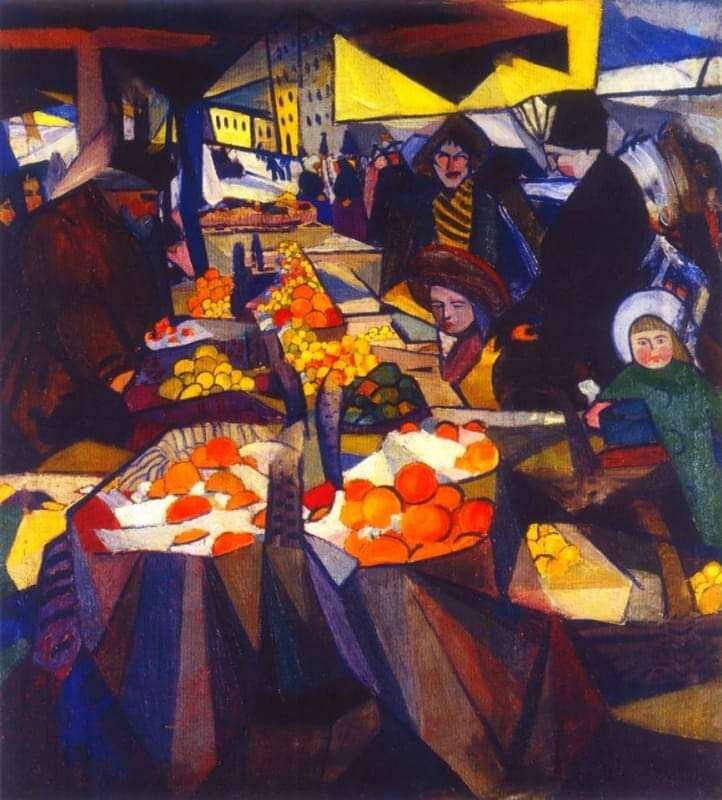
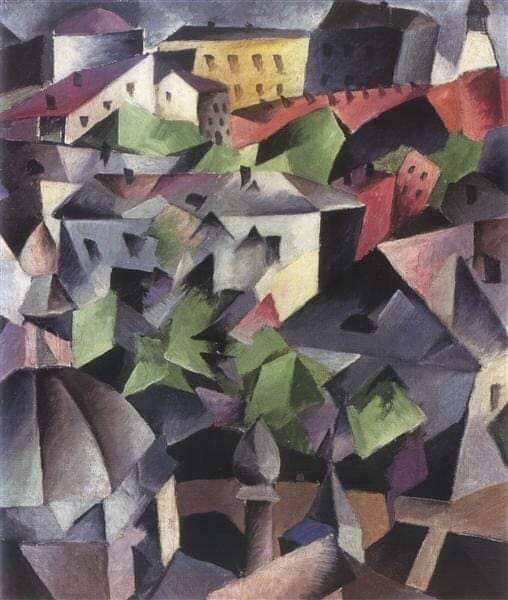
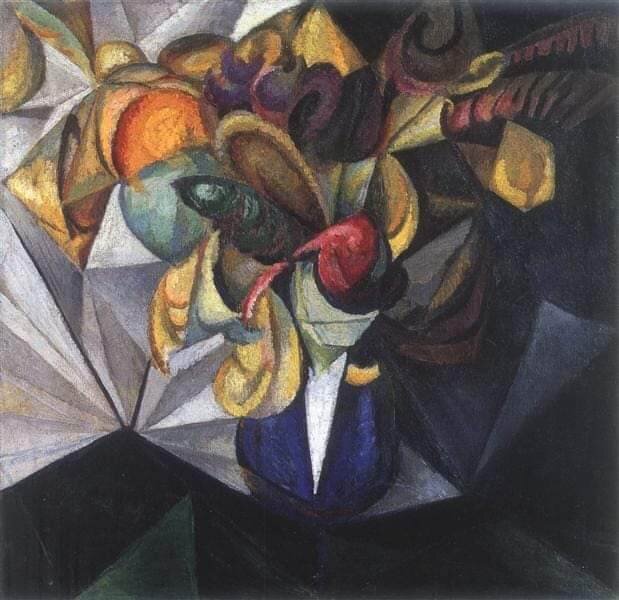
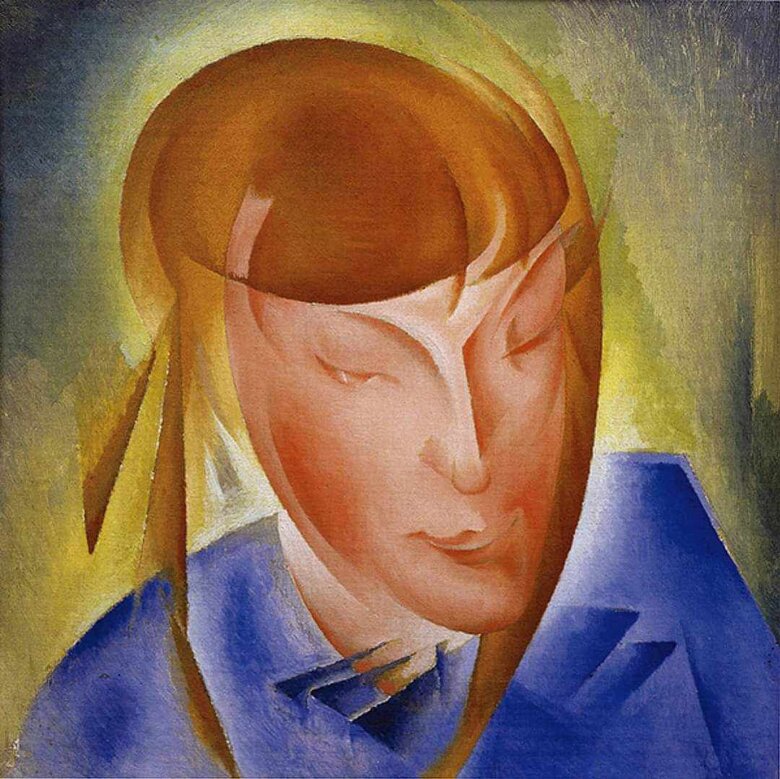
His name was written out of history and only began to be remembered a few decades later.
For me, this is the same interrupted Ukrainian tradition. I returned to those times and am somehow developing my style, looking for something new. It's like a scientific search - what's next, what can be done with this?
- Let's imagine that Ukraine wins this war and the borders are returned to 1991 standards. What will you do then? How do you envisage your peaceful future?
- I will be engaged in art. The first time after demobilisation, it will be travelling, the sea, museums, romantic walks in cities, time for love and my favourite job. As I gain strength, I will continue to gain knowledge in military affairs. I believe we have to learn from the mistakes of the past, grow up and be ready to defend ourselves, then we will have a much better chance of having a peaceful life.
Yevhen Kuzmenko, Censor.NET
Photo: from the archive of Sofiia Pomohaibo

